
Blood Sisters: Part 1 of 3: Can a pledge made for life endure beyond death?
¥23.45
It’s 1983 and best friends Vicky and Lucy swear that they will always be there for each other, that they’ll never let anyone come between them. But fast forward 4 years and life on the Canterbury Estate has gotten very messy.
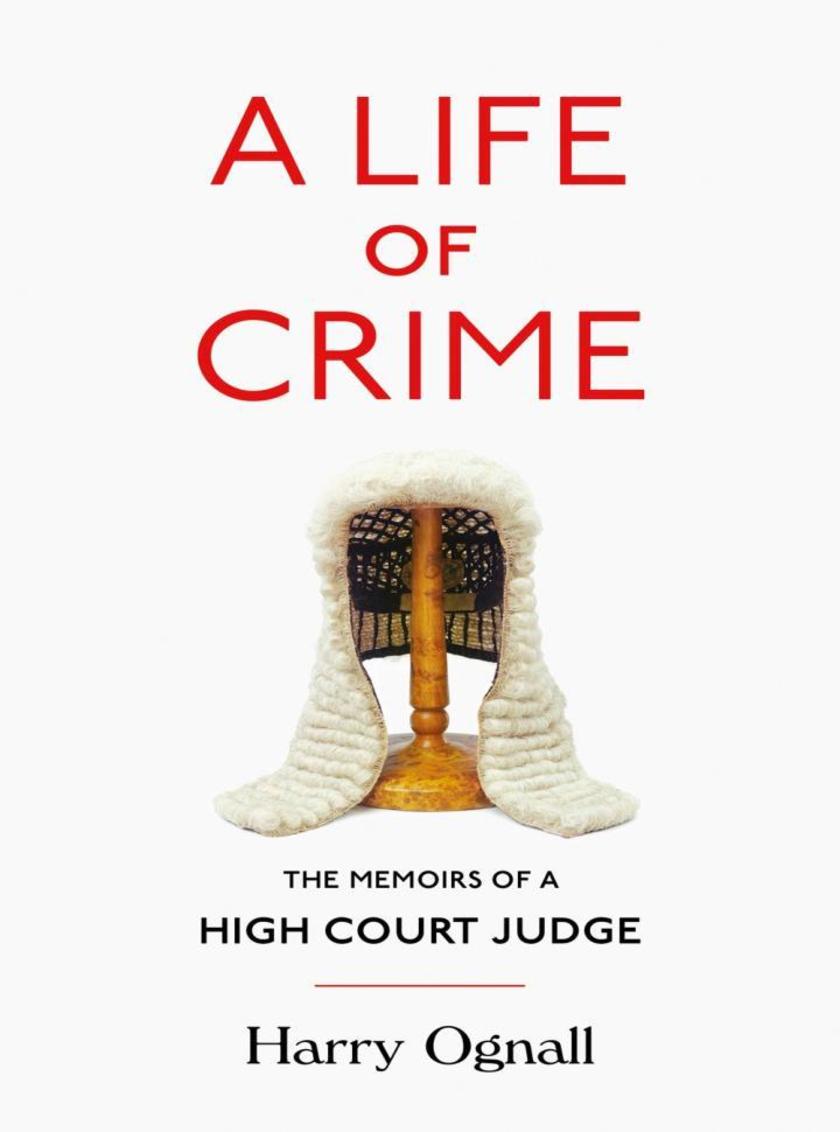
A Life of Crime: The Memoirs of a High Court Judge
¥95.75
A frank and witty memoir of life at the Bar and on the Bench, from former High Court Judge The Hon. Sir Harry Ognall. For many years, Harry Ognall enjoyed a formidable reputation as an advocate at the criminal Bar. As counsel, and later as judge, he was involved in numerous high-profile trials, both in Britain and abroad. Among many cases as a QC, he prosecuted Peter Sutcliffe, the so-called ‘Yorkshire Ripper’. He successfully defended six officers of the Air Force of Zimbabwe at their trial in Harare, where they faced a charge of treasonable sabotage. As a judge, he presided over the trial of Colin Stagg (the alleged ‘Wimbledon Common murderer’), the trial arising from the Lyme Bay canoe tragedy and the trial for the first time in the United Kingdom of a doctor’s alleged involvement in euthanasia. Thoughtful and provocative, Sir Harry has advice for the aspiring young advocate, and invests this penetrating memoir with warmth, humour and understanding. His frank portrait of a lifetime in the criminal law offers unique perspectives on some of the most notorious cases of the twentieth century, as well as fascinating insights into a colourful professional life and the burdens and responsibilities that come with the privilege of high judicial office.

Taken
¥58.86
Experienced foster carer, Rosie Lewis, takes on the heart-breaking case of Megan, a baby born with a drug addiction and a cleft palate. Addicted to drugs from birth because of her mother’s substance abuse during pregnancy, new-born Megan is taken into Rosie’s loving care. Rosie is supposed to help Megan find her new permanent home, but it turns out that Megan has already found her ‘forever mummy’ in Rosie. Rosie grows incredibly attached to Megan and applies to adopt her, but the system refuses her in favour of a young couple and Rosie is devastated. Against all her instincts, Rosie does her job and prepares Megan for her new ‘forever family’, but everything about Megan leaving feels wrong. When Rosie learns a few months later that Megan’s adoption has broken down, she is saddened but also filled with hope – will this little girl be allowed to return to her true ‘forever home’?
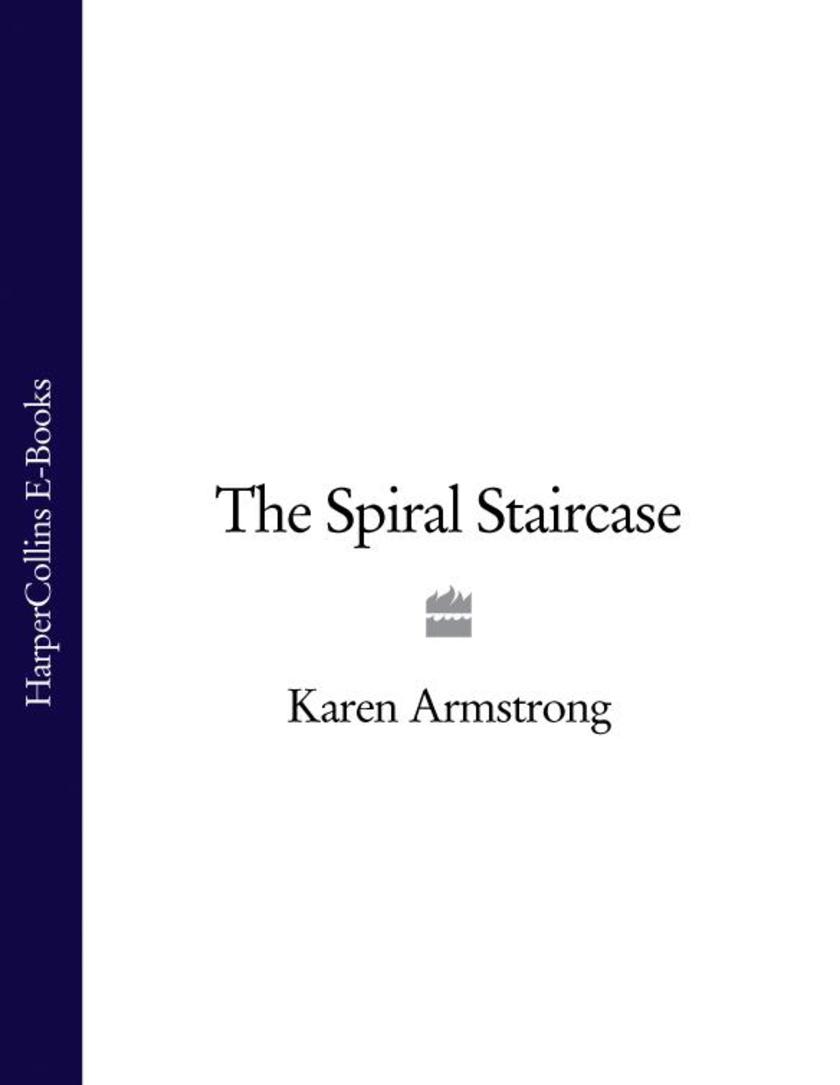
The Spiral Staircase
¥73.58
A raw, intensely personal memoir of spiritual exploration from one of the world’s great commentators on religion.
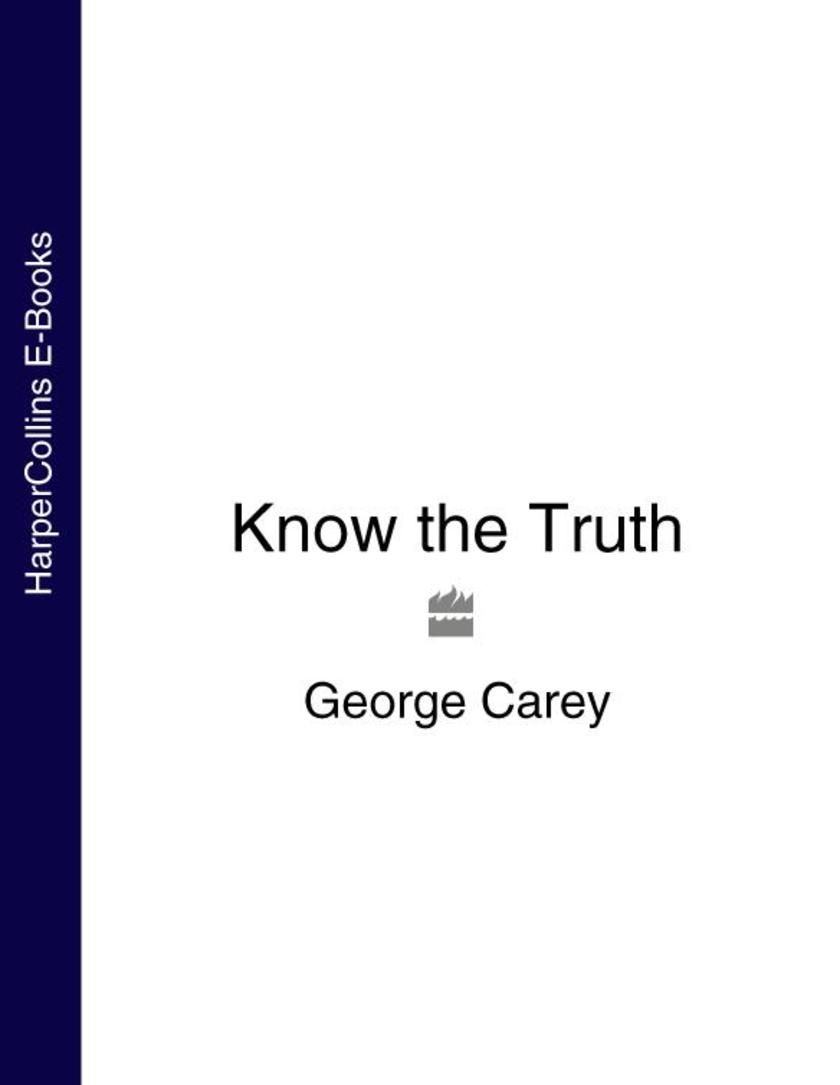
Know the Truth (Text only)
¥85.74
In this remarkable and candid memoir the former Archbishop of Canterbury recalls his life and his spiritual quest; this is the first time in history that an Archbishop of Canterbury has written his autobiography.

Cruel to Be Kind: Saying no can save a child’s life
¥58.86
Cruel To Be Kind is the true story of Max, aged 6. He is fostered by Cathy while his mother is in hospital with complications from type 2 diabetes. Fostering Max gets off to a bad start when his mother, Caz, complains and threatens Cathy even before Max has moved in. Cathy and her family are shocked when they first meet Max. But his social worker isn’t the only one in denial; his whole family are too.

What She Ate: Six Remarkable Women and the Food That Tells Their Stories
¥73.58
‘If you find the subject of food to be both vexing and transfixing, you’ll love What She Ate’ Elle Dorothy Wordsworth believed that feeding her poet brother, William, gooseberry tarts was her part to play in a literary movement. Cockney chef Rosa Lewis became a favourite of King Edward VII, who loved her signature dish of whole truffles boiled in Champagne. Eleanor Roosevelt dished up Eggs Mexican – a concoction of rice, fried eggs, and bananas – in the White House. Eva Braun treated herself to Champagne and cake in the bunker before killing herself, alongside Adolf Hitler. Barbara Pym's novels overflow with enjoyment of everyday meals – of frozen fish fingers and Chablis – in midcentury England. Cosmopolitan editor Helen Gurley Brown's idea of “having it all” meant having almost nothing on the plate except a supersized portion of diet gelatin. In the irresistible What She Ate, Laura Shapiro examines the plates, recipe books and shopping trolleys of these six extraordinary women, casting a new light on each of their lives – revealing love and rage, desire and denial, need and pleasure.

He Died With a Felafel in His Hand
¥46.11
Here for the first time is the full horror and madness of sharing a house, told by someone who’s been there. Birmingham pulls no punches: from dead rats in the kitchen to tent-dwelling lodgers in the living room, you’ll run for the safety of living alone. ‘A rat died in the living room at King Street and we didn’t know. There was at least six inches of compacted rubbish between our feet and the floor. Old Ratty must have crawled in there and died of pleasure. A visitor uncovered him while groping around for a beer.’ Tales of debauchery, drugs, flatmates from hell and nasty things lurking in the kitchen sink abound in Rolling Stone journalist John Birmingham’s hilarious account of sharing houses in Melbourne and Brisbane. He Died with a Felafel in His Hand makes Withnail & I look like a lesson in clean living.

Heroes and Contemporaries (Text Only)
¥54.84
First published in 1983, Heroes and Contemporaries reveals a new aspect of David Gower’s personality – that of an astute and intelligent observer of the game and of his fellow players. In this book he has chosen a collection of the people in cricket he most admires and has written about them in conversational style, with immediacy and critical appreciation. Gower’s encounters with these people behind the scenes – some of the most important players of our time – give us insight into their characters, their strengths and weaknesses, an insight which we would not normally have just by observing them on the field or by reading newspaper reports. His views on the captaincies of Bob Willis, Mike Brearley and Ian Botham are especially revealing. There is also displayed in this book considerable understanding of the psychology of such contemporaries as Ian Botham and Geoff Boycott, and an important chapter is included on Ray Illingworth, Gower’s staunchest champion and sternest critic. Although Heroes and Contemporaries is basically about other people, it also tells us a great deal about David Gower himself.
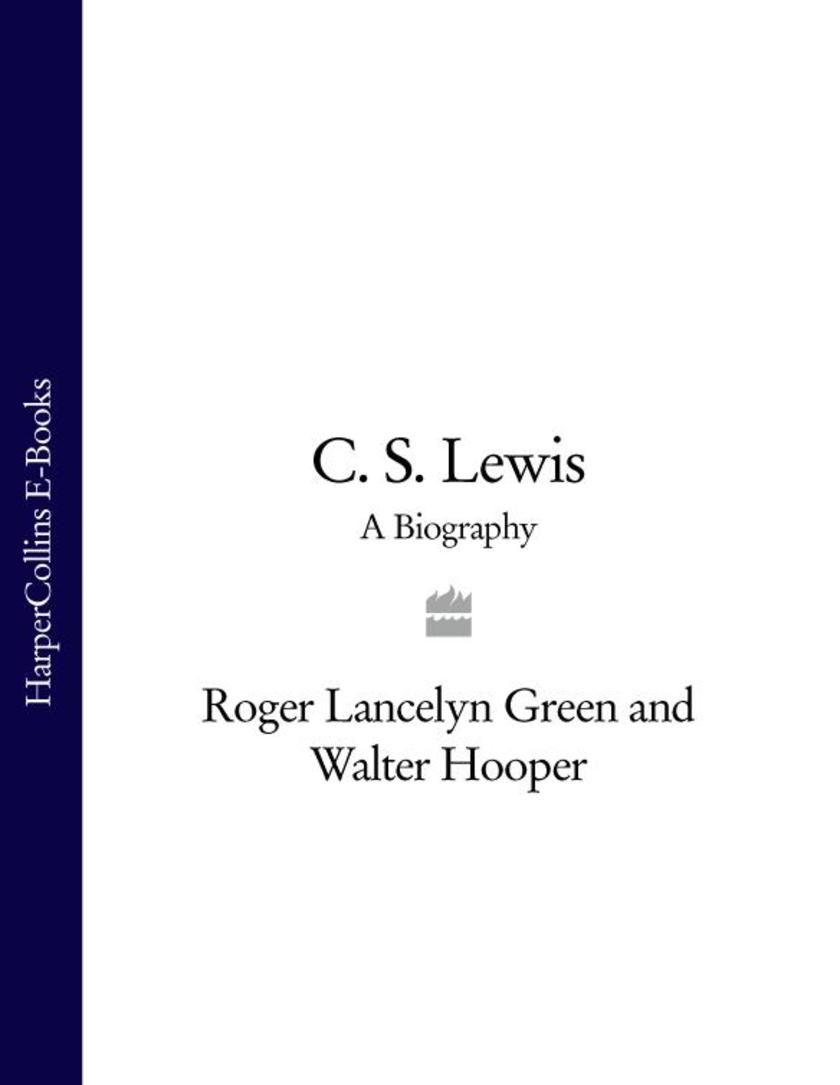
C. S. Lewis: A Biography
¥76.91
This is the true story of C.S. Lewis – one of the greatest writers of the 20th-century – whose books for children and adults have become much loved classics. Part of the story of C.S. Lewis has been made famous through the film ‘Shadowlands’. Here this fascinating man’s entire life story is told by those who knew him personally. C.S. Lewis was born in Belfast in 1898 and was sent to England for a public school education with his elder brother, Warren. Lewis exhibited a genius for imagination and perception from his earliest years. Brought up in a Christian household, Lewis lost his faith in his teenage years but was to regain it, with reluctance, as a fellow at Magdalen College, Oxford. His faith subsequently influenced his writings. He became a vigorous champion of the Christian faith through classics such as ‘Mere Christianity’ and through his BBC broadcasts. His ‘Chronicles of Narnia’ became children’s classics and he was deluged with correspondence from his young readers. In his latter years he unexpectedly fell deeply in love with a divorced American, Joy Greshem, and married her, only to suffer the devastation of her death a few years later. C.S. Lewis died in 1963 at his home in Oxford. During his lifetime C.S. Lewis suggested to his friend, Roger Lancelyn Green, who was a fellow English scholar, that he would undertake his biography one day. After Lewis’s death in 1963 Lancelyn Green and Walter Hooper were approached by several of Lewis’s friends to write the biography. Warren Lewis, brother to Jack, contributed a great deal to the writing. The authors had at their disposal a vast collection of letters and diaries, as well as the recollections of many surviving family members and friends. Walter Hooper has enhanced the original text with additional material to provide a new, expanded edition which all C.S. Lewis fans will be keen to own.
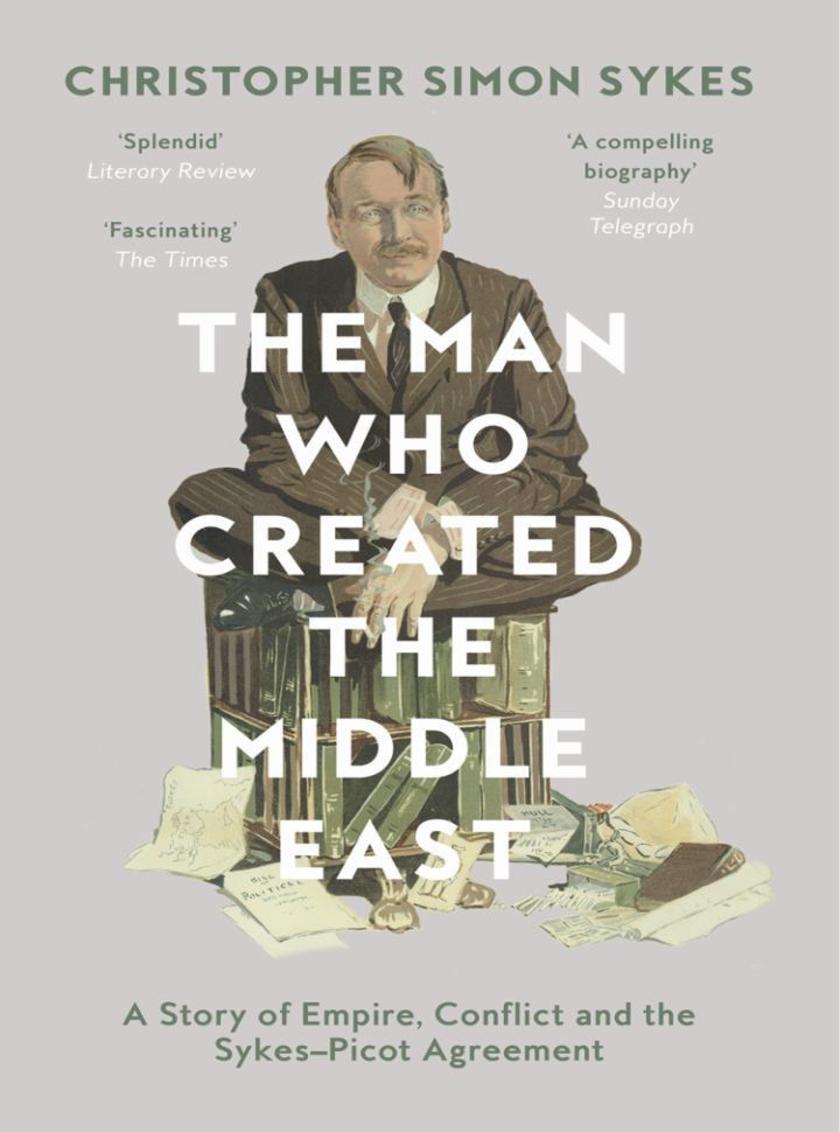
The Man Who Created the Middle East: A Story of Empire, Conflict and the Sykes-P
¥73.58
At the age of only 36, Sir Mark Sykes was signatory to the Sykes-Picot agreement, one of the most reviled treaties of modern times. A century later, Christopher Sykes’ lively biography of his grandfather reassesses his life and work, and the political instability and violence in the Middle East attributed to it. The Sykes–Picot agreement was drawn by the eponymous British and French diplomats in 1916 to determine the divide of the collapsing empire in the event of an allied victory in World War I. Excluding Arab involvement, it negated their earlier guarantee of independence made by the British – and controversy has raged around it ever since. But who was Mark Sykes? A century on, Christopher Simon Sykes reveals new facets of a misremembered diplomatic giant. Using previously undisclosed family letters and cartoons by his grandfather, he delivers a comprehensive and humbling account of the man behind one of the most impactful policies in the Middle East.

Stanley Spencer (Text Only)
¥115.56
Stanley Spencer (1891 – 1959) has recently been recognised by a wide general public, as well as by art historians, as probably the greatest English painter of the twentieth century. His strange and thrilling settings of biblical and semi-biblical scenes, his grippingly realist portraits, his intense English landscapes, hang in pride of place in our national collections and fetch ever-escalating prices at auction. Although there have been many books about Spencer, Pople's biography is the first to give a thoroughly convincing and coherent account of the life and psyche of the man who produced these extraordinary pictures. Pople has not only had the co-operation of Spencer's daughters and remaining friends' he has had unrestricted access to the artist's letters, diaries and other writings, and has spent ten years unravelling the familiar but so often impenetrable mysteries we see on the canvas. His analysis demonstrates that there never was as artist for whom life and art were so much of a piece, and that without understanding Spencer's doings and circumstances, we have no hope of understanding his paintings.
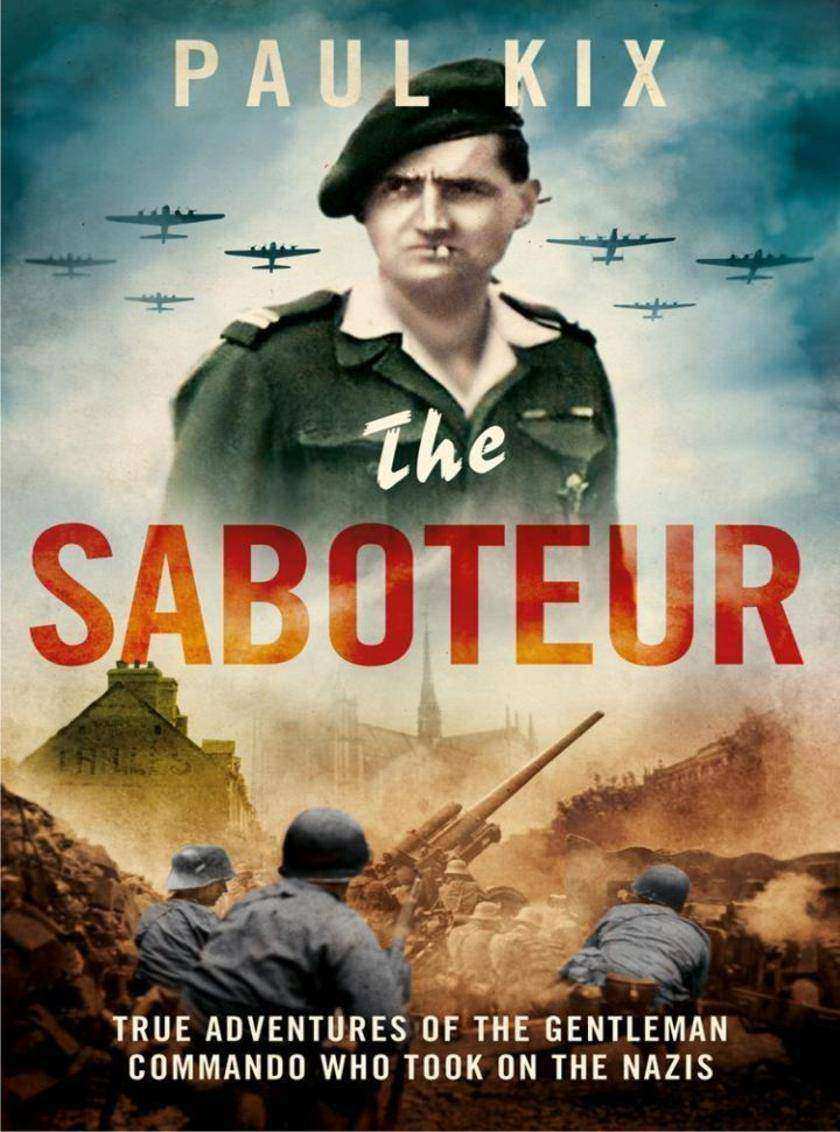
The Saboteur: True Adventures Of The Gentleman Commando Who Took On The Nazis
¥147.35
In the tradition of ‘Agent Zigzag’ comes a breathtaking biography of WWII’s ‘Scarlet Pimpernel’ as fast-paced and emotionally intuitive as the best spy thrillers. This celebrates unsung hero Robert de La Rochefoucauld, an aristocrat turned anti-Nazi saboteur, and his exploits as a British Special Operations Executive-trained resistant A scion of one of the oldest families in France, Robert de La Rochefoucauld was raised in a magnificent chateau and educated in Europe’s finest schools. When the Nazis invaded and imprisoned his father, La Rochefoucauld escaped to England and was trained in the dark arts of anarchy and combat – cracking safes, planting bombs and killing with his bare hands – by a collection of SOE spies. With his newfound skills, La Rochefoucauld returned to France and organized Resistance cells, blew up fortified compounds and munitions factories, interfered with Germany’s wartime missions and executed Nazi officers. Caught by the Germans, La Rochefoucauld withstood months of torture and escaped his own death sentence, not once but twice. More than just a fast-paced, real-life thriller, The Saboteur is also a deep dive into an endlessly fascinating historical moment, revealing the previously untold story of a network of commandos, motivated by a shared hatred of the Nazis, who battled evil and bravely worked to change the course of history.
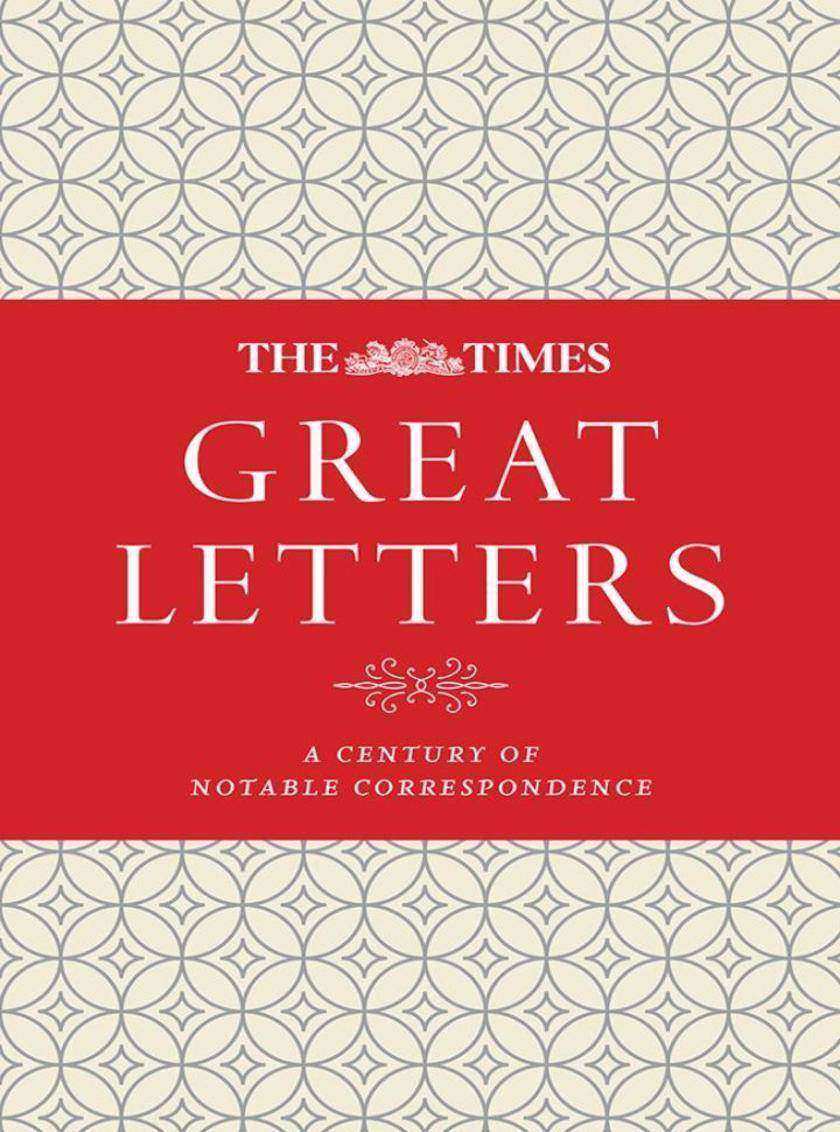
The Times Great Letters: A century of notable correspondence
¥147.35
The Times has the most famous letters page of any newspaper. This delightful selection of over 300 items of correspondence over the last century shows precisely why. As a forum for debate, playground for opinion-formers, advertising space for decision-makers and noticeboard for eccentrics, nothing rivals it for entertainment value. By turns well-informed, well-intentioned, curious, quirky and bizarre, since 1914 it has taken the temperature of the British way of life and provided a window on the national character. Among those who have written to The Times to have their say are some of the major political and literary figures of the modern era, including Margaret Thatcher, Benito Mussolini, Graham Greene and John Le Carré. There are contributions, too, from Agatha Christie, Alastair Campbell, AA Milne, Yehudi Menuhin, Theresa May and Morrissey. If you want to know why kippers are dyed, who first turned up their trousers, how to make perfect porridge or just how to have a letter printed in The Times, this infinitely witty, diverting and memorable anthology should be, sincerely, yours.

Harvey Keitel
¥53.76
Originally published in 1997 and now available as an ebook. It has not been possible to include the illustrations in the electronic edition. Perhaps the bravest and most inspiring actor of his generation, Harvey Keitel has made his menacing presence felt in some of the greatest cult movies ever, from Scorsese's Mean Streets and Taxi Driver to Tarantino's Reservoir Dogs and Pulp Fiction. With over fifty films to his name, a dozen of them since 1992, Keitel is one of the most ubiquitous and sought-after actors in Hollywood. Yet unlike so many of his contemporaries, he constantly surprises with daring and risk-taking performances in ground-breaking films such as Bad Lieutenant, The Last Temptation of Christ, The Piano and Smoke. Since his tough childhood in Brooklyn, Keitel's life has been a dramatic and unconventional as his screen roles. 'Harvey Keitel: The Art of Darkness 'tells, for the first time, the story of the rollercoaster career and turbulent personal life of this most powerful performer.

Letters to the Lady Upstairs
¥73.67
A charming, funny, poignant collection of twenty-three letters from Marcel Proust to his upstairs neighbour 102 Boulevard Haussmann, an elegant address in Paris’s eighth arrondissement. Upstairs lives Madame Williams, with her second husband and her harp. Downstairs lives Marcel Proust, trying to write In Search of Lost Time, but all too often distracted by the noise from upstairs. Written by Proust to Madame Williams between the years 1909 and 1919, this precious discovery of letters reveals the comings and goings of a Paris building, as seen through Proust’s eyes. You’ll read of the effort required to live peacefully with annoying neighbours; of the sadness of losing friends in the war; of concerts and music and writing; and, above all, of a growing, touching friendship between two lonely souls. ‘Delightful. Big news for Proustians’ Daily Telegraph ‘If you have suffered from noisy neighbours, you will sympathize with Marcel Proust’ Times Literary Supplement ‘A haunting portrait of a friendship between two people who lived within earshot of one another, separated only by a few inches of plaster and floorboard, but who scarcely ever met’ New Statesman

I Owe You Nothing
¥38.36
The truth behind the spectacular rise and fall of a pop legend in his own words. For three years the Goss twins, Luke and Matt, had the world at their feet. Their records ripped to the top of the charts, they filled concert halls and were mobbed wherever they went. Their fall was as fast and spectacular as their rise. From being pop’s golden boys they became the band that everyone loved to hate, amidst spectacular rumours of bankruptcy and media manipulation. What went wrong? In this compelling book Luke Goss tells the whole incredible story, including: ? The million-point contract that left the band broke. ? The ‘weird unreality’ of going from unknown to superstar almost overnight. ? So-called ‘friends’ who turned their backs as soon as the bubble burst. It’s a cautionary tale for anyone aspiring to pop stardom, it is a saga of hurt and heartache, and, above all, it is a tribute to the family and friends – including Matt – who have stood by him through those frenetic years. It is, as Luke says, the laying to rest of a nightmare.
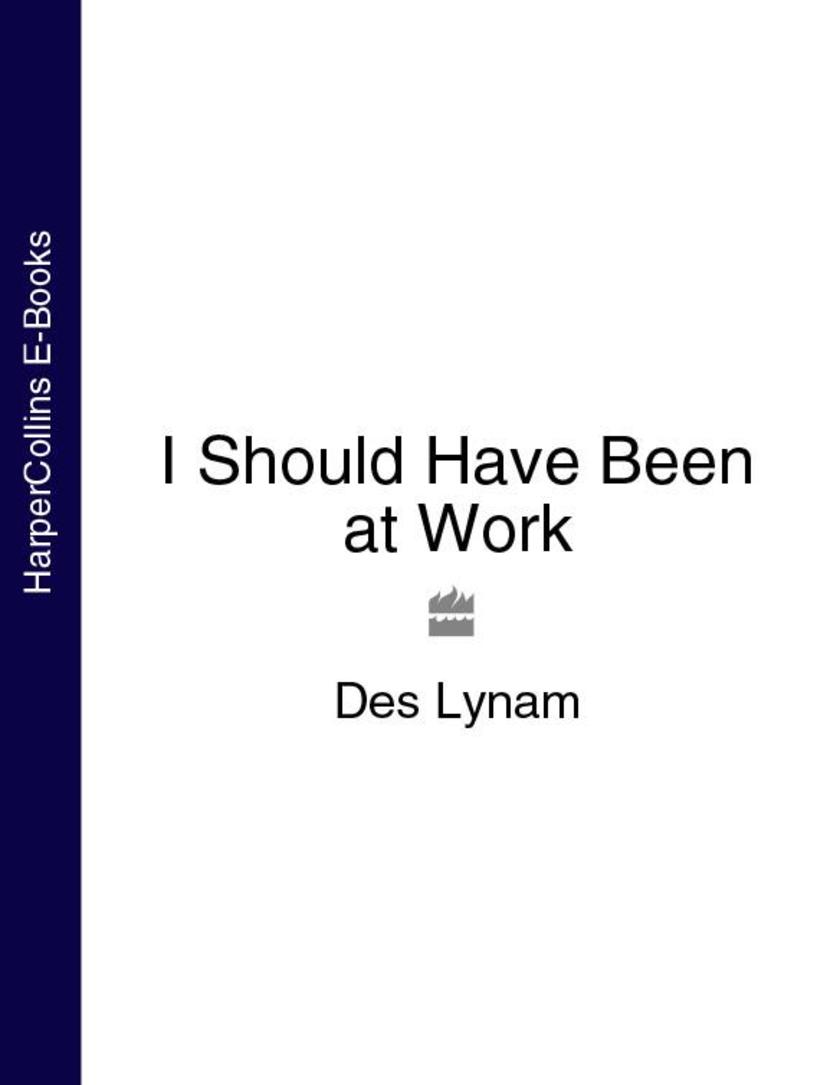
I Should Have Been at Work
¥53.76
First published in 2005 and now available as an ebook. Des Lynam’s autobiography gives a frank and opinionated insight into the man behind the myth. Des Lynam is one of Britain's best-loved and most successful personalities. Famously guarded about his private life, Des will attempt to set the record straight and talk about the ladies in his life, his childhood days in Ireland, as well as his early marriage and life in 70s London. Des takes us through his 30 years at the BBC from a reporter on local radio to the drama of his top-secret move to ITV which was front page news on every national newspaper. The World Cups, the Olympic Games including his reporting of the Israeli shootings in Munich. Following Muhammad Ali to his fights in Zaire, Malaysia and the USA. The Grand National that never was, the IRA threatened race. The programmes he turned down, the ones he wished he had! Des offers a candid account of life behind the scenes at the national broadcaster, the people he has met, the triumphs, the disasters. In the unique role of top presenter on both main channels, he tells of his 5 years at ITV, his reasons for going there and why his decision was justified but in other ways disastrous.

Enemies Within: Communists, the Cambridge Spies and the Making of Modern Britain
¥184.23
What pushed Blunt, Burgess, Cairncross, Maclean and Philby into Soviet hands? With access to recently released papers and other neglected documents, this sharp analysis of the intelligence world examines how and why these men and others betrayed their country and what this cost Britain and its allies. Enemies Within is a new history of the influence of Moscow on Britain told through the stories of those who chose to spy for the Soviet Union. It also challenges entrenched assumptions about abused trust, corruption and Establishment cover-ups that began with the Cambridge Five and the disappearance of Guy Burgess and Donald Maclean on the night boat to Saint-Malo in 1951. In a book that is as intellectually thrilling as it is entertaining and illuminating, Richard Davenport-Hines traces the bonds between individuals, networks and organisations over generations to offer a study of character, both individual and institutional. At its core lie the operative traits of boarding schools, the universities of Oxford and Cambridge, the Intelligence Division, Foreign Office, MI5, MI6 and Moscow Centre. Davenport-Hines tells many stories of espionage, counter-espionage and treachery. With its vast cope, ambition and scholarship, Enemies Within charts how the undermining of authority, the rejection of expertise and the suspicion of educational advantages began, and how these have transformed the social and political temper of modern Britain.
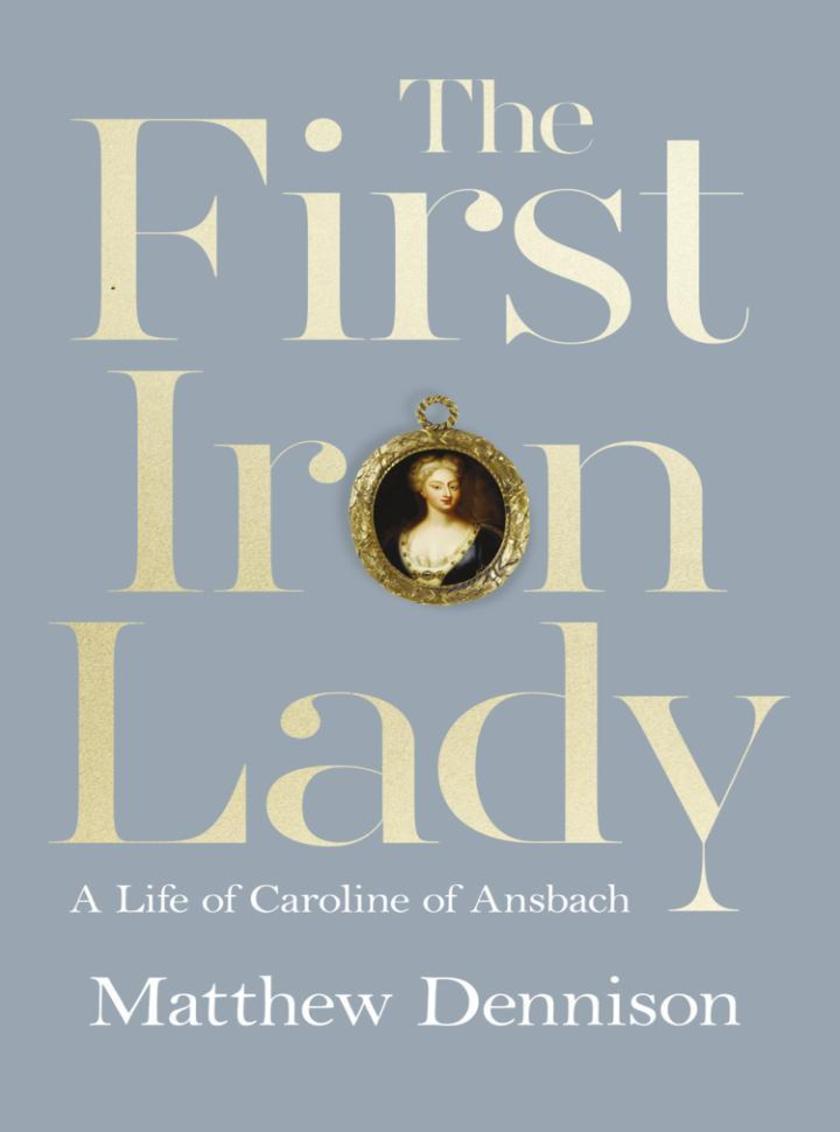
The First Iron Lady: A Life of Caroline of Ansbach
¥81.03
A brilliant study of a brilliant woman' LUCY WORSLEY History has forgotten Caroline of Ansbach, yet in her lifetime she was compared frequently to Elizabeth I and considered by some as ‘the cleverest queen consort Britain ever had’. The intellectual superior of her buffoonish husband George II, Caroline is credited with hastening the Enlightenment to Britain through her sponsorship of red-hot debates about science, religion, philosophy and the nature of the universe. Encouraged by Lady Mary Wortley Montagu, she championed inoculation; inspired by her friends Leibniz and Samuel Clarke, she mugged up on Newtonian physics; she embraced a salon culture which promoted developments in music, literature and garden design; she was a regular theatre-goer who loved the opera, gambling and dancing. Her intimates marvelled at the breadth of her interests. She was, said Lord Egmont, ‘curious in everything’. Caroline acted as Regent four times while her husband returned to Hanover, and during those periods she possessed authority over all domestic matters. No subsequent royal woman has exercised power on such a scale. So why has history forgotten this extraordinary queen? In this magnificent biography, the first for over seventy years, Matthew Dennison seeks to reverse this neglect. The First Iron Lady uncovers the complexities of Caroline’s multifaceted life: the child of a minor German princeling who, through intelligence, determination and a dash of sex appeal, rose to occupy one of the great positions of the world and did so with distinction, élan and a degree of cynical realism. It is a remarkable portrait of an eighteenth-century woman of great political astuteness and ambition, a radical icon of female power.

The Inklings: C. S. Lewis, J. R. R. Tolkien and Their Friends
¥69.26
During the 1930s at Oxford, C. S. Lewis, J. R. R. Tolkien, and Charles Williams--remarkable friends, writers, and scholars--met regularly to discuss philosophy and literature and to read aloud from their own works in progress. Calling themselves the Inklings, their circle grew. It was in this company that such classics as The Lord of the Rings, The Screwtape Letters, and The Lion, the Witch, and the Wardrobe first found an audience. Author Humphrey Carpenter was born in Oxford and was acquainted with Tolkien, Hugo Dyson, and several other Inklings. In this remarkable reconstruction of their meetings and momentous friendships, Carpenter brings to life those warm and enchanting evenings in Lewis' rooms at Magdalen College, when their imaginations ran wild. His account offers exciting insights into the influence these brilliant individuals had on each other's developing ideas and writing.




 购物车
购物车 个人中心
个人中心



